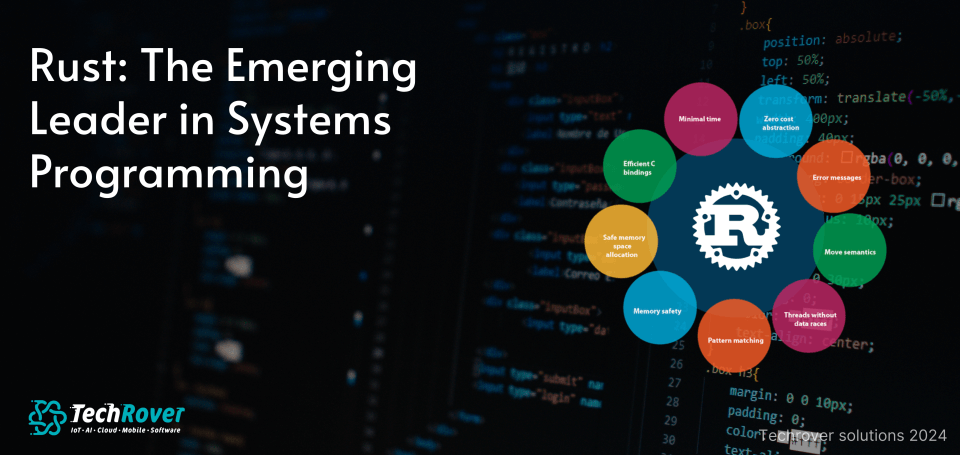Why Rust is Becoming the Go-To Language for Systems Programming

In the realm of systems programming, where performance, safety, and control are paramount, Rust has emerged as a formidable contender.
Its rise has been nothing short of meteoric, with developers flocking to it for its unique blend of power and precision. But what makes Rust the go-to language for systems programming?
Let’s delve into the technicalities and uncover why Rust is capturing the hearts of systems programmers worldwide.
This blog dives deep into the reasons behind Rust’s growing popularity and offers a primer on its basics, aiming to shed light on why it might just be the next big thing in the world of programming.
This blog delves into the reasons behind Rust’s surging popularity and provides a comprehensive primer on its fundamentals. By exploring its innovative features and practical applications, we aim to uncover why Rust is poised to become the next big thing in programming. Rust’s unique combination of safety, speed, and concurrency positions it as an attractive choice for developers. Join us as we explore the factors driving its rise and understand why it is gaining traction among developers globally. Whether you are an experienced programmer seeking new challenges or a novice looking for a modern language, Rust offers capabilities that make it worth your attention.
Key Features of Rust
Memory Safety: Through its ownership system.
Concurrency: Fearless concurrency model.
Performance: Comparable to C/C++.
Tooling: Excellent tools like Cargo, Rustfmt, and Clippy.
Unmatched Safety
A primary draw for developers to Rust is its uncompromising approach to memory safety without sacrificing performance. Rust’s unique ownership system ensures that memory management issues like dangling pointers or data races are caught at compile time rather than runtime. This makes Rust programs inherently safer and eliminates the cumbersome manual memory management that is a common source of bugs in C and C++.
Fearless Concurrency
In an era of multicore processors, concurrent task execution is crucial. Rust’s innovative concurrency model allows developers to fully utilize modern hardware without data races or concurrency bugs. Its ownership and type systems ensure mutable data is never accessed by multiple threads simultaneously unless explicitly allowed.
Cross-Platform
RUST is a cross-platform language, meaning that code written in RUST can be compiled to run on different operating systems and hardware architectures. This makes RUST an ideal language for developing systems software that needs to run on multiple platforms.
Performance Rivaling C/C++
Rust excels in both safety and speed. Benchmarks and real-world applications show that Rust’s performance can match or surpass C and C++, making it ideal for performance-critical software like systems programming and game development.
Expanding Ecosystem
Rust’s success is driven by a thriving ecosystem of libraries and tools. The community has grown exponentially, with crates.io, Rust’s package registry, offering diverse libraries for web development, scientific computing, and more. This vibrant ecosystem simplifies tool discovery and fosters a collaborative community, enhancing Rust’s appeal.
Easy to Learn
Despite its focus on safety and reliability, RUST is an easy language to learn. RUST’s syntax is like that of C and C++, making it easy for developers with experience in those languages to transition to RUST. RUST also provides extensive documentation and tutorials, making it easy for new developers to get started. Developed by Mozilla, RUST offers developers the ability to write low-level code without sacrificing safety and security.
Superior Tooling
Rust stands out for its exceptional tooling. Tools like Cargo (package manager and build system), Rustfmt (code formatter), and Clippy (linter) streamline the development process. These tools facilitate dependency management, enforce code quality, and highlight Rust’s focus on productivity and maintainability.
Conclusion
Rust’s focus on performance, safety, concurrency, and modern language features makes it an attractive choice for developers seeking a reliable and efficient programming language. Whether you’re building system software, web applications, or anything in between, Rust offers the tools and capabilities you need to succeed. As Rust’s ecosystem continues to evolve and expand, now is an excellent time to explore what this powerful language has to offer.


